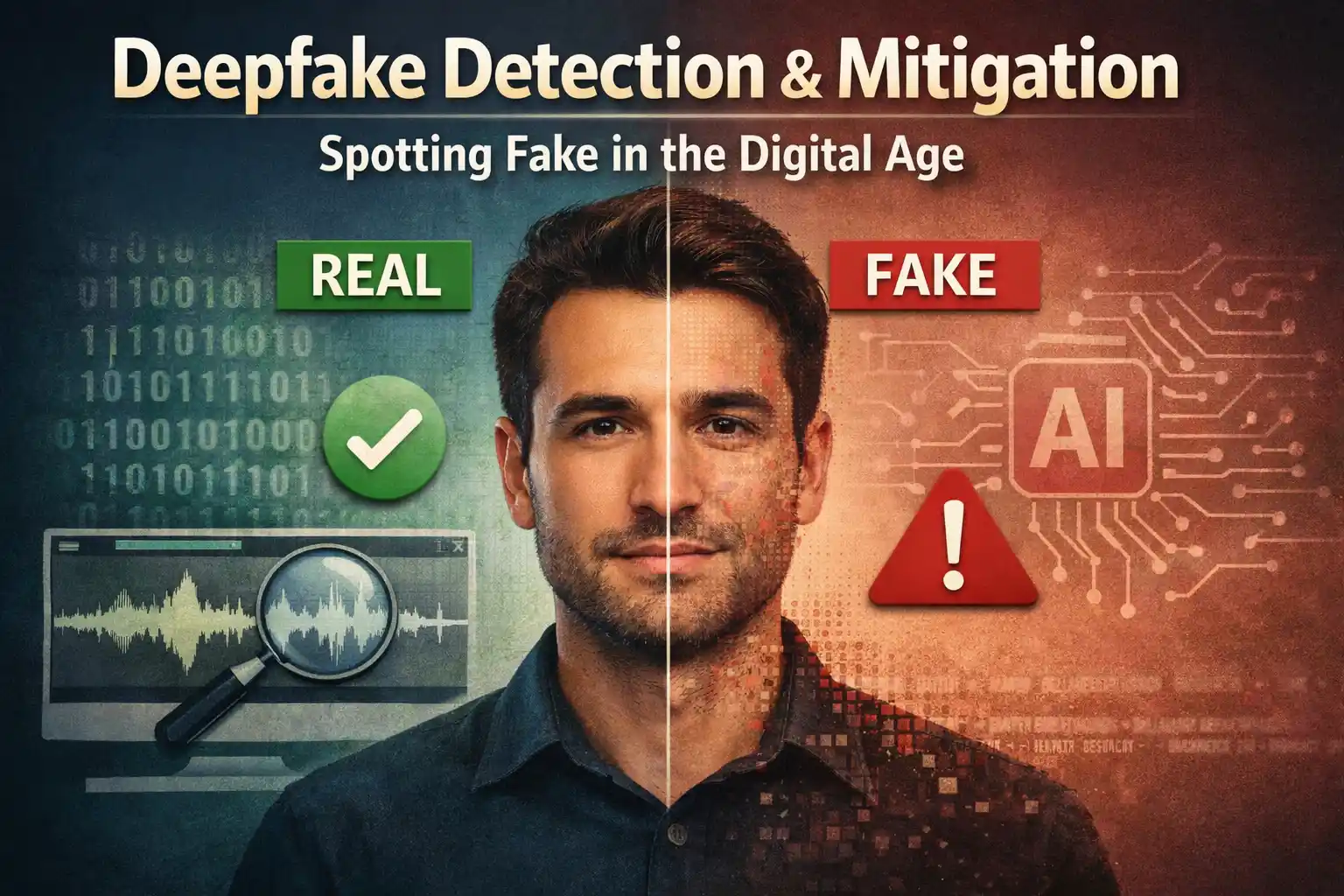
In today’s hyper-connected world, almost everything you do—whether banking, shopping, or working—is linked to the internet. But while you are enjoying the convenience, there is an invisible battlefield constantly evolving beneath the surface: cybersecurity.
Every time you log into your social media, check your emails, or make an online transaction, there’s a silent war going on to protect your data from cybercriminals. And you might not even realize it, but cyber-attacks are happening every second. Hackers are continually developing new methods to steal data, disrupt services, or even hold your entire system hostage until you pay a ransom. This is why cybersecurity has become more critical than ever.
How Cyber-Attacks Happen: The Tricks of the Trade
Cyber-attacks come in many forms, but some of the most common methods hackers use are:
- Phishing: This is when hackers send emails or messages that look legitimate, tricking you into clicking a malicious link or sharing sensitive information. You might receive an email that appears to be from your bank, asking you to “verify” your account details. But once you click on the link, you’ve unknowingly handed over your credentials to the hacker.
- Ransomware: One of the scariest forms of attack, ransomware involves hackers locking you out of your system and demanding money (a ransom) to restore access. This type of attack has hit both small businesses and large organizations, causing chaos and financial losses.
- Malware: This is malicious software designed to damage, steal, or spy on your data. It can infect your device through a seemingly harmless file or link.
- Social Engineering: Hackers manipulate individuals into revealing confidential information by pretending to be someone trustworthy. It’s often used in combination with phishing attacks to gain access to systems.
How Can You Protect Yourself?
The good news is that while the threats are real, there are several steps you can take to protect yourself from cyber-attacks:
- Use Strong Passwords: Avoid simple passwords like “123456” or “password.” Use a combination of letters, numbers, and symbols. Also, make sure each account has a unique password.
- Two-Factor Authentication: Enable two-factor authentication (2FA) wherever possible. This adds an extra layer of security, requiring you to enter a code sent to your phone in addition to your password.
- Stay Alert: Be cautious when clicking on links or downloading files from unknown sources. Hackers often disguise malware as legitimate software or documents.
- Regular Software Updates: Make sure your operating system, antivirus software, and applications are always up to date. Updates often contain patches for security vulnerabilities.
- Back Up Your Data: Regularly back up your important data to ensure that you won’t lose everything if an attack happens.
The Companies Leading the Cybersecurity Revolution
Several companies are at the forefront of the cybersecurity industry, providing solutions to protect individuals, businesses, and even governments from evolving threats. Here are some key players in the field:
1. Palo Alto Networks
Known for next-generation firewalls and cloud-based security solutions, Palo Alto Networks helps businesses prevent cyber-attacks by offering a comprehensive security platform that includes firewall protection, threat intelligence, and advanced security analytics.
2. Cisco Systems
Cisco provides a range of networking and cybersecurity solutions that secure business networks, detect threats, and help respond to attacks. Their Cisco Secure platform integrates threat intelligence, cloud security, and network security.
3. CrowdStrike
CrowdStrike is famous for its AI-powered Falcon platform, which offers advanced endpoint protection. Their real-time detection capabilities help stop malware and ransomware attacks before they can cause damage.
4. McAfee
McAfee offers antivirus and cybersecurity tools for individuals and businesses, focusing on preventing malware and other online threats. Their consumer-focused approach makes them a widely recognized name in security.
5. Fortinet
Fortinet provides integrated cybersecurity solutions, including firewalls, antivirus, and intrusion prevention systems. Their technology is scalable, making them a top choice for enterprises.
Is Cybersecurity a Future Investment Opportunity?
As the digital world continues to expand, so do the threats that come with it. Businesses and governments are pouring billions of dollars into cybersecurity to safeguard their data, intellectual property, and financial systems. But it’s not just about protection—cybersecurity has become a massive investment opportunity.
1. The Growing Demand for Cybersecurity Solutions
With the rise of remote work, cloud computing, and the Internet of Things (IoT), the demand for cybersecurity services is expected to skyrocket. Every new device that connects to the internet opens another door for hackers, making security solutions a necessity across industries.
Financial institutions, healthcare, manufacturing, and even small businesses are rapidly adopting advanced cybersecurity measures. This means companies in this field are seeing significant growth, and investors are taking notice.
2. Rising Threats = Rising Investments
The frequency and complexity of cyber-attacks are on the rise. High-profile incidents like the Colonial Pipeline ransomware attack and breaches involving companies like Facebook and Target have raised awareness about the importance of cybersecurity. With these threats becoming more sophisticated, businesses are increasing their cybersecurity budgets, creating a booming market.
According to market reports, the global cybersecurity market is projected to grow from $200 billion in 2023 to over $500 billion by 2030. This growth rate makes cybersecurity one of the hottest sectors for investors.
3. Companies Worth Watching
Investors looking to enter the cybersecurity space should keep an eye on major players like Palo Alto Networks, CrowdStrike, and Fortinet, as they are leading the charge in developing advanced solutions. These companies have shown strong financial growth, and as the demand for cybersecurity increases, their revenues are expected to follow suit.
There’s also room for emerging startups specializing in niche areas like artificial intelligence-powered security, zero-trust architecture, and blockchain-based security solutions. These innovative approaches are likely to shape the future of cybersecurity, offering new opportunities for investors.
4. Cybersecurity ETFs
For those looking for a more diversified approach, cybersecurity-focused ETFs (Exchange-Traded Funds) offer exposure to multiple companies in the sector. Some popular options include the First Trust NASDAQ Cybersecurity ETF (CIBR) and the ETFMG Prime Cyber Security ETF (HACK). These funds invest in a basket of leading cybersecurity companies, making them a less risky option for investors who want broad exposure to the industry.
Why Cybersecurity Will Continue to Be a Critical Industry
As technology continues to evolve, so will the tactics of cybercriminals. With businesses increasingly relying on digital infrastructure and more personal data being stored online, the need for strong cybersecurity solutions is only going to grow. This makes the cybersecurity industry not just a necessity for protection, but also a lucrative space for future investment.
In a world where your data is more valuable than ever, both individuals and businesses are recognizing that cybersecurity is a must-have. For investors, it presents a long-term growth opportunity as the digital landscape continues to expand.
Whether you are protecting your own data or looking for the next big investment, cybersecurity is a field that cannot be ignored. As threats increase, so will the need for advanced protection—and those who invest wisely could see significant returns.


































































